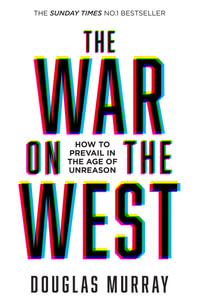"Giulia Cimini's book gives us a thorough, clear and well-informed account of what has been happening in the political Maghreb since the outbreak of the Arab Spring in 2011. Her study of Maghrebi political parties is both theoretical and empirical. The author does not limit her analysis to the available documentation; she has lived in the countries concerned and has met dozens of stakeholders and researchers. She therefore goes beyond appearances to make us experience the reality of the field. In a pleasant style that does not dwell on ephemeral details and avoids hermetic jargon, she offers us a masterpiece."
Maati Monjib, Professor of Political History, University Mohammed V. Rabat, Morocco
"This major contribution to the study of political parties systematically compares Islamist and establishment parties in post-Uprising Tunisia and Morocco. The consequences of parties' varying mixes of modern and traditional political practices at the national and grassroots levels are examined for their impact on parties' legitimacy and representativeness.The product of extensive field research including a large number of documents and interviews, the study masterfully situates deep area specific knowledge within comparative political science debates over parties' global level evolution."
Raymond Hinnebusch, Professor of International Relations and Middle East Politics, University of St. Andrews, Scotland
"This is a most relevant contribution to the study of political parties in the Arab world, an oft-neglected topic in the literature. Focusing on Tunisia and Morocco, the author offers a theoretically sophisticated and empirically solid analysis of party systems and parties in the midst of considerable institutional changes."
Francesco Cavatorta, Associate Professor in the Department of Political Science, Universite Laval, Quebec, Canada
"This is a fantastic feat of a book, which has been a long time under way. Cimini has painstakingly conducted research in Morocco and Tunisia over an 8-year period, resulting in a book that is rich with original data that sheds new light on the topic. Furthermore, the analysis is grounded in the classic party politics literature, which the author engages eloquently with throughout the book, and it thus avoids a common pitfall of many an area studies book. I applaud Cimini for this excellent piece of work, which I am sure will become a staple, not only in my own work, but also with my political science and Middle East studies students."
Lise Storm, Associate Professor of Party Politics and Director of the Centre for Middle East Politics (C-MEP), University of Exeter, United Kingdom
"For more than a decade, Middle Eastern literature has focused on democratic transition, its chances of success, and its predicaments. Giulia Cimini goes beyond redundant issues, with very few exceptions. Innovatively, in this account of post-uprising Tunisia and Morocco political parties take center stage. The book adopts a multidimensional approach and for the first time analyses the functioning of Arab parties through this lens, offering a comprehensive picture that includes the national leadership, the elected representatives and the grassroots level. A brilliant, bold and original retort to those who reduce politics in the Arab world to top-down pronouncements."
Hamadi Redissi, Emeritus Professor of Political Science, University of Tunis, Tunisia
























